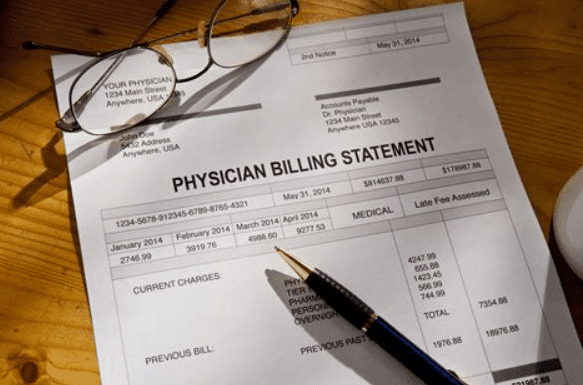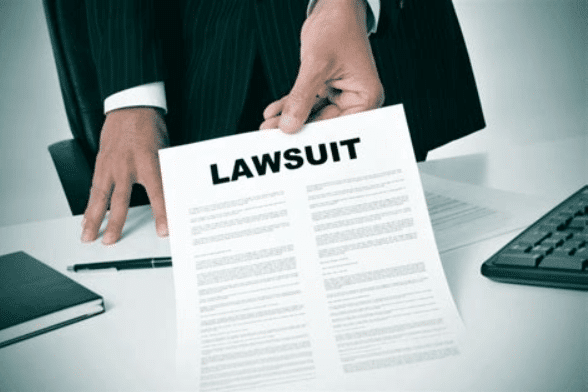Associated Credit Services is a debt collection agency that collects debt for banks, credit card companies, and more. If you are being sued by Associated Credit Services, you have up to 35 days to respond depending on where you live. Use ZumaZip to draft and file your response in just 15 minutes.
Sued for a debt by Associated Credit Services? This guide is for you. Use ZumaZip to respond in 15 minutes.
Receiving a notice of a lawsuit from Associated Credit Services (ACS) is a serious matter. This company, based in Westborough, MA, has been collecting past due debts throughout the US since 1969. ACS has a tried-and-true formula for collecting debts. Usually, it starts with letters and phone calls. They will try to get you to pay the full debt plus added fees and interest.
If you receive communications from ACS, take it as an opportunity to resolve the debt without being sued. ACS agents know that it is cheaper to take a lower amount in settlement than to take the matter to court. Debtors can use this to their advantage to convince ACS to waive fees, penalties and some of the debt itself. If you don’t have enough cash to pay in full, a payment arrangement can be made. Provided you make the payments, you will save money and avoid a lawsuit.
ACS employs teams of lawyers whose sole job is to litigate against debtors. When its attempts to collect fail, ACS refers your account to its legal team.
When you receive a Summons and Complaint from ACS, answer it immediately. Ignoring it will result in a default judgment for the full amount, plus fees and even the cost of litigation. Once a default judgment is ordered by the court, you are powerless to stop collection activity and you must pay the debt even if you do not owe it or the amount is grossly overstated.
In this blog post, we break down everything you should know about Associated Credit Services and how to beat them in court.
Let’s jump right in.
What is Associated Credit Services?
Associated Credit Services (ACS) is a third-party debt collection agency that gets hired by banks, credit card companies, and even universities to do debt collection services on their behalf. Founded in 1969, ACS has been a leading agency in the debt collection industry for several decades.
If you need to reach someone with Associated Credit Services, use the contact information below:
Associated Credit Services, Inc.
PO Box 1201
Tewksbury MA, 01876
Phone: (508) 366 – 0888
Fax: 888-978-5738
Toll Free: (800) 531 – 6500
Who does Associated Credit Services collect for?
Associated Credit Services collects for commercial and non-commercial financial institutions, credit card servicers, credit unions, public utilities, healthcare and insurance providers, corporate business organizations, and higher education institutions.
With so much experience in the debt collection industry, Associated Credit Services knows how to play the game. ACS has been known to use questionable debt collection methods to get people to pay off their debts. If you feel like you’ve been harassed by a debt collector with ACS, you’re not alone.
Associated Credit Services has bad reviews and many complaints
As of 2022, the Better Business Bureau has received 40 complaints against Associated Credit Services in the most recent three-year period. Even worse, the Consumer Financial Protection Bureau reported 61 complaints against ACS over the same time period. Associated Credit Services has a 1-star rating out of 5 stars on its BBB profile.
These complaints against ACS frequently mention violations of the Fair Debt Collection Practices Act (FDCPA). For example, Associated Credit Services has used the following tactics to collect on debts:
- Trying to collect on a fraudulent debt.
- Reporting fraudulent debts to the credit reporting bureaus.
- Calling at odd hours of the day to discuss a debt.
- Ignoring requests to communicate through mail and email only.
- Failing to validate a debt upon request.
- Being rude and professional on phone calls.
Let’s take a look at a real consumer complaint from Associated Credit’s BBB profile:
“An organization called Associated Credit Services has been harassing me by phone regarding a fraudulent debt they claim I owe. I have previously disputed the debt when another collections company attempted to harass me about it. The information they claim to have regarding the debt owed does not match any valid accounts I’ve ever held and appears they’ve pulled various bits of public information about me to fabricate an account that doesn’t actually exist. I’ve informed them in the past that the debt they think they’re collecting is fake and to remove my information from their systems and they continue to call.”
Avoid an ACS Inc garnishment
A default judgment leaves you with limited options. Debt collectors actually like it when defendants, like you, offer no defense. They can use legal loopholes to seize your funds.
Once ACS has a default judgment against you, it’s “open season” on many of your assets. If you have less than the judgment in the bank, ACS can levy your bank account and, in some jurisdictions, strip it bare. Wage garnishment is another possible consequence. Some jurisdictions limit wage garnishments more than others, so find out what percentage can be garnished in your state
Imagine money disappearing from your bank account and paycheck, leaving you unable to pay the rent. To avoid this, you must respond.
Respond to a debt collection lawsuit against Associated Credit Services
The first step to beating Associated Credit Services in court is to respond to the lawsuit with a written Answer.
Receiving court documents from a debt collector like Associated Credit Services can be daunting, but it’s essential to understand your rights and options. Typically, you’ll receive the Summons, which officially notifies you of the lawsuit, and the Complaint, detailing the specific claims against you.
You’re usually given up to 35 days to respond to these documents, varying by state, before facing default judgment. While hiring an attorney might seem necessary, ZumaZip offers a cost-effective alternative. With ZumaZip, you can represent yourself and prepare your Answer document, saving both money and stress.
Responding to a debt lawsuit filed by Associated Credit Services (ACS) requires a strategic approach. Here are three essential steps to follow:
- Respond to each claim: Carefully review the Complaint document and respond to each claim it contains. You have the option to admit, deny, or deny due to a lack of knowledge for each allegation. It’s advisable to deny as many allegations as possible to make ACS work harder to prove the debt’s validity.
- Assert affirmative defenses: Identify and assert affirmative defenses that support your case. One common defense is the statute of limitations, which renders the debt unenforceable if it has expired. If applicable, raise this defense to potentially have the case dismissed.
- File the Answer: Prepare and file your Answer with the court before the deadline, typically within 14-35 days depending on your state’s rules. Send a copy of the Answer to ACS’s attorneys via USPS-certified mail, requesting a return receipt as proof of delivery.
By following these steps diligently, you can effectively respond to the debt lawsuit brought against you by Associated Credit Services and protect your rights throughout the legal process.
You can draft and file an Answer with ZumaZip in just 15 minutes.
Assert you affirmative defenses against ACS
Asserting your affirmative defenses against Associated Credit Services (ACS) can be crucial in defending yourself against their claims. Even if ACS can prove that you owe them money, presenting valid affirmative defenses can lead to a dismissal of the case. An affirmative defense is a legally recognized reason that warrants the dismissal of the case. These defenses may include:
- Statute of limitations: If the statute of limitations has expired, ACS may no longer have the legal right to pursue legal action against you for the debt.
- Inaccuracy of amount owed: If there are errors or inaccuracies in the amount demanded by ACS, you can challenge the validity of the debt based on this discrepancy.
- Lack of standing: ACS must demonstrate that they have the legal standing to sue you for the debt. If they cannot prove their ownership or authority over the debt, you may have grounds for dismissal.
- Violation of consumer protection laws: If ACS has violated any consumer protection laws, such as the Fair Debt Collection Practices Act (FDCPA), you can assert this as a defense against their claims.
By asserting these affirmative defenses, you can strengthen your position and potentially secure a dismissal of the case filed by Associated Credit Services. It’s essential to thoroughly review your options and consult with legal experts to determine the most effective defense strategy in your particular situation.
Make the right defense the right way with ZumaZip.
Some of the most effective affirmative defenses include the following:
You are not responsible for the debt
For example, you’ve been billed for credit card charges you never made.
The amount demanded is inaccurate
If you believe that the amount demanded by Associated Credit Services (ACS) is inaccurate, it’s essential to take proactive steps to address this issue. Debt collection lawyers commonly pursue the maximum possible amount, which may result in errors that favor ACS. Here’s what you can do:
- Demand full documentation: Request comprehensive documentation of all activity on the account from ACS. This includes itemized records detailing transactions, penalties, and fees that have contributed to the balance.
- Review the original credit agreement: Check if you agreed to penalty interest rates, fees, attorney’s fees, and court costs outlined in the original credit agreement. If these terms were not explicitly agreed upon, you have grounds to dispute them.
- Object to excessive fees: If you find that attorney’s fees and court costs are excessive or were not stipulated in the original agreement, you can object to their inclusion in the demanded amount.
By scrutinizing the documentation and terms associated with the debt, you can identify any inaccuracies or discrepancies and take appropriate action to address them. This proactive approach helps protect your rights and ensures that you are not held accountable for inflated or unjustified charges.
The statute of limitations has expired
Understanding the statute of limitations is critical when dealing with debt collectors like Associated Credit Services (ACS). This legal timeframe dictates the duration within which a debt collector or original creditor can sue someone for an outstanding debt.
The statute of limitations commences from the last activity on the account, such as a payment, withdrawal, or acknowledgment of the debt. It’s essential to note that this timeframe varies by state.
Before proceeding with any payments to Associated Credit Services, it’s imperative to verify whether the statute of limitations on your debt has expired. Doing so can help protect your rights and ensure that you’re not held liable for a debt that is no longer legally enforceable.
Let’s take a look at an example.
Example: Julia, a resident of Florida, finds herself in a situation where she owes her credit card company nearly $2,000. Over the past four years, Julia hasn’t made any payments on the account. Seeking to recover the debt, the credit card company enlists Associated Credit Services (ACS). Unfamiliar with ACS, Julia chooses to ignore their calls and letters. However, after a few months, ACS escalates the matter by filing a lawsuit against Julia for the debt.
In her moment of need, Julia turns to ZumaZip for guidance. Through ZumaZip’s platform, she discovers that the statute of limitations on her debt is three years in Alabama, where the lawsuit was filed. This crucial information reveals that ACS lacks the legal authority to pursue legal action against her.
Empowered with this knowledge, Julia utilizes ZumaZip to draft and file her Answer, citing the expired statute of limitations as one of her affirmative defenses. As a result, the court dismisses the case, safeguarding Julia’s rights and providing her with relief from the undue burden of the debt collection lawsuit.
Settle your debt with Associated Credit Services
Settling your debt with Associated Credit Services (ACS) can be a viable option to resolve the situation. Consider negotiating a settlement agreement that reduces the balance, waives excessive fees, and dismisses the lawsuit. If you can afford the debt and acknowledge your responsibility for it, settling out of court may save you time and resources.
Debt collectors like ACS often accept settlements for less than the full amount owed. Determine the maximum amount you can pay upfront and initiate negotiations by offering a lower sum. ACS may counteroffer with terms that are agreeable to both parties, facilitating a resolution to your debt.
You can settle your debt with the help of ZumaZip Settle.
What is ZumaZip?
ZumaZip is a convenient solution designed to streamline your response to a debt collection lawsuit. Here’s a breakdown of what you can expect when you use ZumaZip:
Firstly, you’ll access our user-friendly web application, which guides you through the process step by step. You’ll be prompted to answer a series of questions related to your specific situation. Once you’ve completed the questionnaire, you have the option to either print out the finalized forms and mail them to the appropriate courts yourself, or you can opt to utilize ZumaZip’s services to file them on your behalf. Additionally, if you choose this option, an attorney will review your document for added peace of mind.
If you’re seeking guidance on how to effectively respond to a debt collection lawsuit, ZumaZip can provide the assistance you need. Feel free to explore our FAQs for more information on what ZumaZip has to offer.
What if I haven’t been sued yet?
If you’ve only received a collections notice, but not a lawsuit, the best way to respond is with a Debt Validation Letter. When a debt collector contacts you in any way, whether it’s by phone or mail, you can respond by formally requesting a debt validation with a Debt Validation Letter . This letter notifies the collector that you dispute the debt and forces them to provide proof you owe the debt. They can’t call you or continue collecting until they provide validation of the debt. This flowchart shows how you can use a Debt Validation Letter to win.
Get started with a Debt Validation Letter here.
How to Answer a Summons for debt collection in all 50 states
Here’s a list of guides on how to respond to a debt collection lawsuit in each state:
- Alabama
- Alaska
- Arizona
- Arkansas
- California
- Colorado
- Connecticut
- Delaware
- Florida
- Georgia
- Hawaii
- Idaho
- Illinois
- Indiana
- Iowa
- Kansas
- Kentucky
- Louisiana
- Maine
- Maryland
- Massachusetts
- Michigan
- Minnesota
- Mississippi
- Missouri
- Montana
- Nebraska
- Nevada
- New Hampshire
- New Jersey
- New Mexico
- New York
- North Carolina
- North Dakota
- Ohio
- Oklahoma
- Oregon
- Pennsylvania
- Rhode Island
- South Carolina
- South Dakota
- Tennessee
- Texas
- Utah
- Vermont; Vermont (Small Claims court)
- Virginia
- Washington
- West Virginia
- Wisconsin
- Wyoming
Guides on how to beat every debt collector
Hey there! Facing off against a debt collector can feel like a daunting challenge, but fear not! We’re here to help you navigate through it all with our handy guides designed to assist you in beating every debt collector you encounter. Whether you’re facing a new lawsuit or dealing with a persistent collector, we’ve got your back. Stay positive, stay informed, and let’s tackle this together!
- Absolute Resolutions Investments LLC
- Accredited Collection Services
- Alliance One
- Amcol Clmbia
- American Recovery Service
- Asset Acceptance LLC
- Asset Recovery Solutions
- Associated Credit Services
- Autovest LLC
- Cach LLC
- Cavalry SPV I LLC
- Cerastes LLC
- Colinfobur
- Covington Credit
- Crown Asset Management
- CTC Debt Collector
- Cypress Financial Recoveries
- Delanor Kemper & Associates
- Eagle Loan of Ohio
- Educap
- Estate Information Services
- FIA Card Services
- Forster & Garbus
- Freshview Solutions
- Fulton Friedman & Gullace LLP
- Harvest Credit Management
- Howard Lee Schiff
- Hudson & Keyse LLC
- Integras Capital Recovery LLC
- Javitch Block
- Jefferson Capital Systems LLC
- LVNV Funding
- Mannbracken
- Mariner Finance
- Medicredit
- Michael J Adams PC
- Michael J Scott
- Midland Funding LLC
- Mullooly, Jeffrey, Rooney & Flynn
- Mountain Land Collections
- MRS Associates
- National Collegiate Trust
- Nationstar Foreclosure
- Northstar Capital Acquisition
- NCEP LLC
- NRC Collection Agency
- OneMain Financial
- Palisades Collection LLC
- Pallida LLC
- Paragon Revenue Group
- Pinnacle Collections Agency
- PMAB LLC
- Portfolio Recovery Associates
- Provest Law
- PYOD LLC
- Reunion Student Loan Finance Corporation
- Revenue Group
- Regents and Associates
- RSIEH
- Salander Enterprises LLC
- Second Round Sub LLC
- Security Credit Services
- Sherman Financial Group
- Suttell and Hammer
- T-Mobile
- Transworld Systems
- Tulsa Teachers Credit Union
- UCB Collection
- Velo Law Office
- Velocity Investments
- Waypoint Resource Group
- Weinberg and Associates
- Wolpoff & Abramson
Settle your medical debt
Having a health challenge is stressful, but dealing medical debt on top of it is overwhelming. Here are some resources on how to manage medical debt.
- Am I Responsible for My Spouse’s Medical Debt?
- Do I Need a Lawyer for Medical Bills?
- Do I Need a Lawyer to Fight Medical Bill Debt?
- Does Bankruptcy Clear Medical Debt?
- How Much Do Collection Agencies Pay for Medical Debt?
- How to Find Medical Debt Forgiveness Programs
- Is There a Statute of Limitations on Medical Bills?
- Medical Debt Statute of Limitations by State
- Summoned to Court for Medical Bills — What Do I Do?
- Summoned to Court for Medical Bills? What to Do Next
Stop calls from Debt Collectors
Do you keep getting calls from an unknown number, only to realize that it’s a debt collector on the other line? If you’ve been called by any of the following numbers, chances are you have collectors coming after you, and we’ll tell you how to stop them.



































